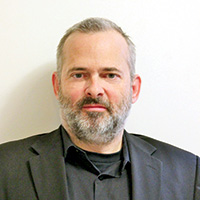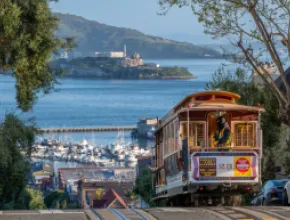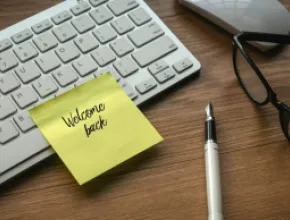Facing fast-evolving expectations from planners, organizers and participants around the changing shape of today’s meetings experience, DMOs are increasingly having to rethink traditional selling points, competitive differentiators and value propositions.
They need not look far, however. The proven strategy for transforming these challenges into opportunity is found in their own backyard—by utilizing their local centers of intellectual capital and knowledge.
The process starts with the bedrock business fundamentals of networking and building relationships. By forming deep, trusting connections with local leaders in business, academia, government, the arts and other areas, DMOs can then leverage these relationships to attract and support meetings aligned with specific segments across the width and breadth of their marketplace. For destinations like Raleigh, N.C., which has pursued this strategy since 2005, the results are, as Greater Raleigh CVB Executive Vice President Loren Gold said, “true bottom-line meetings ROI.”
Meetings Today checked in with several DMO leaders to discuss how transferring local knowledge to groups equals mutual success.
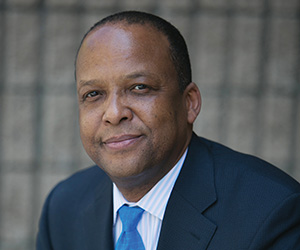 Darren Green, Senior Vice President of Sales, Los Angeles Tourism & Convention Board
Darren Green, Senior Vice President of Sales, Los Angeles Tourism & Convention Board
“Boasting an unrivaled talent pool of sector-spanning thought leaders, Los Angeles is an irresistible magnet for idealists and innovators. With key clusters including entertainment, technology, aerospace, international trade, medical, biotech and more, the business leaders of L.A.’s exceptionally diversified economy combine passion and expertise in ways that can’t be found elsewhere.
Critical to our strategy as a DMO is conveying the impact that meetings, conferences and events have not only on the destination, but on their enterprises. Accordingly, we leverage our relationships with these leaders to be city advocates during the booking process/site inspection, as well as resourcing the meeting when it comes.
When looking at a medical conference, for example, we show not only the convention center or usual meeting spaces, but also fully integrate and engage a Cedars Sinai Medical Center or a UCLA Health in the process, so they can showcase available resources aligning with that conference.
Service sets L.A. Tourism apart. Our Client Services team specializes in cultivating great reach into leaders in these key clusters. They actively research and connect with thought leaders, maintaining a robust database for groups seeking alignment with local resources complementing their program. This includes sourcing conference speakers, saving groups the expense of flying people in and other costs. Our team also works hand-in-hand with the meeting planner to fully understand their needs and to connect all available local resources fully aligned with their conference goals and objectives.
Looking at length of stay, attendee spend and comparative attendance growth, quantifying ROI from this strategy includes additional attendee bookings, repeat business and overall economic impact. Having some of the country’s finest medical institutions here, such as USC, Cedars-Sinai and City of Hope, has helped propel a rise in medical conferences. Dubbed ‘Silicon Beach,’ our tech industry, fastest growing in the country, is also attracting a flock of meetings business.”
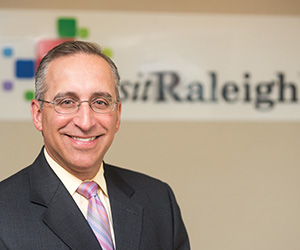 Loren Gold, Executive Vice President, Greater Raleigh Convention & Visitors Bureau (GRCVB)
Loren Gold, Executive Vice President, Greater Raleigh Convention & Visitors Bureau (GRCVB)
“Raleigh commenced the strategy of utilizing local intellectual capital in 2005 when pre-selling the Raleigh Convention Center (RCC), Raleigh Marriott City Center and Sheraton Raleigh. While excited for the forthcoming meetings infrastructure, we did not feel that selling on the buildings alone would differentiate us. Creating a unique value proposition came from looking at existing strengths in our own backyard. We had many corporate, nonprofit and academic leaders wanting to showcase the ‘new’ downtown Raleigh. Plus, some very strong vertical industries had already put Raleigh and the Research Triangle Region on the national and global map for technology, life sciences and medical and research universities. By tapping into this intellectual capital, we knew we could provide groups with speakers, sponsors, exhibitors and an increased attendance to their valued conventions.
In early 2006, we launched The Raleigh Connectors program to elevate awareness and identify leaders willing to connect us to regional, national and international opportunities. We also established a dedicated business development manager to serve as a conduit between our sales team and key local decision makers and influencers in business, academic, economic development, cultural institutions and other areas. Our joint sales teams (GRCVB, RCC and downtown hotels) also host year-round engagements with local leaders to promote the value of working with the CVB.
Focused on leisure, sports and conventions and meetings, our much-evolved Connectors program seeks to leverage all local partners to extend our brand. This includes the ‘Keep it Home’ campaign. Aimed at keeping Raleigh-based companies home for meetings, user groups and conferences, we go hyper-local in promoting everything from area F&B and musicians to keynote speakers.
Reflected by the local leaders showcased in our ‘Rooted in Raleigh’ campaign, we are a community of smart innovators. Prospecting, engaging and building relationships with these passionately minded individuals and organizations is an evolved means of bringing revenue while supporting our brand, yielding economic development opportunities and substantiating our collaborative, inclusive way of thinking. In 2016, direct impact from our convention center surpassed $500 million. I would project that at least half of that total is tied to utilizing our local connectors and community leaders.”
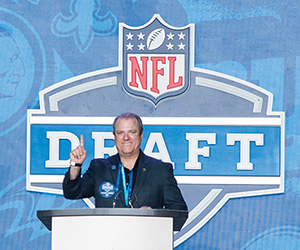 Rick Staub, Senior Vice President, Convention Division, Philadelphia CVB (PHLCVB)
Rick Staub, Senior Vice President, Convention Division, Philadelphia CVB (PHLCVB)
“With three business development divisions focused on attracting meetings, conventions and events in their respective fields, the bureau has transformed local intellectual capital into a successful business model that serves as a primary competitive advantage for our destination and convention industry.
Promoting Philadelphia as a welcoming and inclusive destination to increase share of multicultural meetings, PHL Diversity generated an estimated $42 million in economic impact and 43,000 room night bookings through 31 diversity-related events in 2016.
PHL Life Sciences, the only division of its kind in the U.S., promotes the region’s leading life science assets. Nearly half of all major groups booked at the Pennsylvania Convention Center and area hotels are life sciences-related, and in 2016, PHL Life Sciences generated $295 million in economic impact for the region, with a total of 213,000 room nights booked through 247 events.
Working with the City of Philadelphia, the city’s professional teams and universities, PHL Sports attracted 30 sports-related events in 2016, generating $180 million in economic impact and 49,000 PHLCVB-contracted room nights. This year we secured the 2017 NFL Draft, a resounding success attracting over 250,000 attendees.
Annually, we track key metrics around attendance, room nights and economic impact to measure ROI by market segment. In 2016, the three divisions generated $517 million in economic impact, representing over half of our business.
We cast a wide networking and lead generation net, primarily through our organizational board and each division’s own advisory board, comprising industry leaders plus various chambers of commerce, city council, associations and leading anchor organizations. Our convention sales team develops deep ties with community organizations supporting specific target industries, which also allows the PHLCVB to support causes and social missions aligned with our values.
We leverage various tools to reach meeting planners, including ongoing networking opportunities, video and social media. For PHL Life Sciences, we recently released a lighthearted video that tied together Philadelphia’s historical and cultural offerings while highlighting key industry players. We have a meeting planner-specific account, @MeetPHL, and do targeted outreach via LinkedIn and Facebook.”
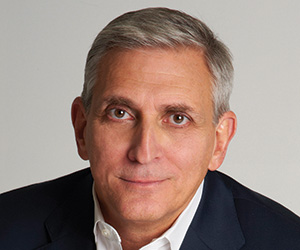 Butch Spyridon, President, Nashville Convention & Visitors Corp.
Butch Spyridon, President, Nashville Convention & Visitors Corp.
“When I got into this business, I was taught that connecting meeting planners to local resources is our value proposition. It’s something our team has been doing for years and consistently strives to improve upon. I would say that it’s our differentiator and should be for all DMOs.
We build great relationships of all kinds in Nashville so that we can better serve our clients. Meeting planners, by definition, are forced to reinvent the wheel every time they move to a new location. If we can minimize the reinvention by providing the necessary knowledge, direction and resources, then we can ease their burden and maximize the offerings of the city. It should be a win-win.
Since becoming a membership organization, we have ensured that our local universities and the music industry have had a seat at the table. Both are invaluable partners in booking meetings, expert speakers and world-class talent. We help our clients create ‘only-in-Nashville experiences’ like our songwriter programs, which combine teambuilding and entertainment. Our guests not only hear songs—they help write them.
Our staff’s longevity and expertise has proven to be the best gateway for meeting planners, by being responsive, reliable and focused with them on their needs. I believe we have built the reputation of trust and productivity. There’s no better word of mouth than a client telling a peer they should book us. When the trust is there, the sky’s the limit on enhancing program offerings. There’s nothing better than helping a client solve a problem, fill a void and create a memorable experience.
Outcome-wise, the quality and quantity of demand for Nashville as a meeting destination is testimony enough for us. The intrinsic value and relationships we provide for our clients have helped elevate Nashville to seventh place on Cvent’s list of top U.S. meeting destinations for 2017, up from ninth in 2016.”
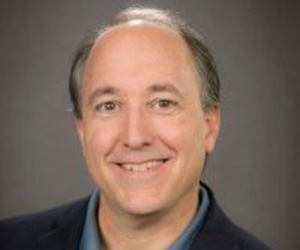 Steve Genovesi, Senior Vice President of Sales, Visit Austin
Steve Genovesi, Senior Vice President of Sales, Visit Austin
“Austin, often referred as the ‘Silicon Hills,’ is a tech hub full of innovative companies anchored with the world-class University of Texas at Austin (UT). Additionally, the new Dell Medical School at UT is the first medical school to have opened at a public university in 50 years, with internationally acclaimed faculty. We leverage these entities for speakers as well as for mobile workshops.
Austin is a close-knit community, so we are connected to a variety of local organizations and institutions that work to benefit our city. We share our database of local speakers and resources with meeting planners so they can determine which entities match their goals and objectives.
In terms of communicating this value proposition to the meeting planner world, it’s best first to have our convention services and marketing teams interact with our definite groups one to two years out to better understand the meeting theme and how Austin can be infused into the event. Also, as groups leave Austin and receive high marks for attendee satisfaction and “one-of-a-kind” experiences, we’ve done our job for a successful partnership. Our clients then talk to other clients.
This strategy is definitely growing our business for national meetings, specifically in the technology and medical segments, which are among Austin’s highest employment sectors.”




